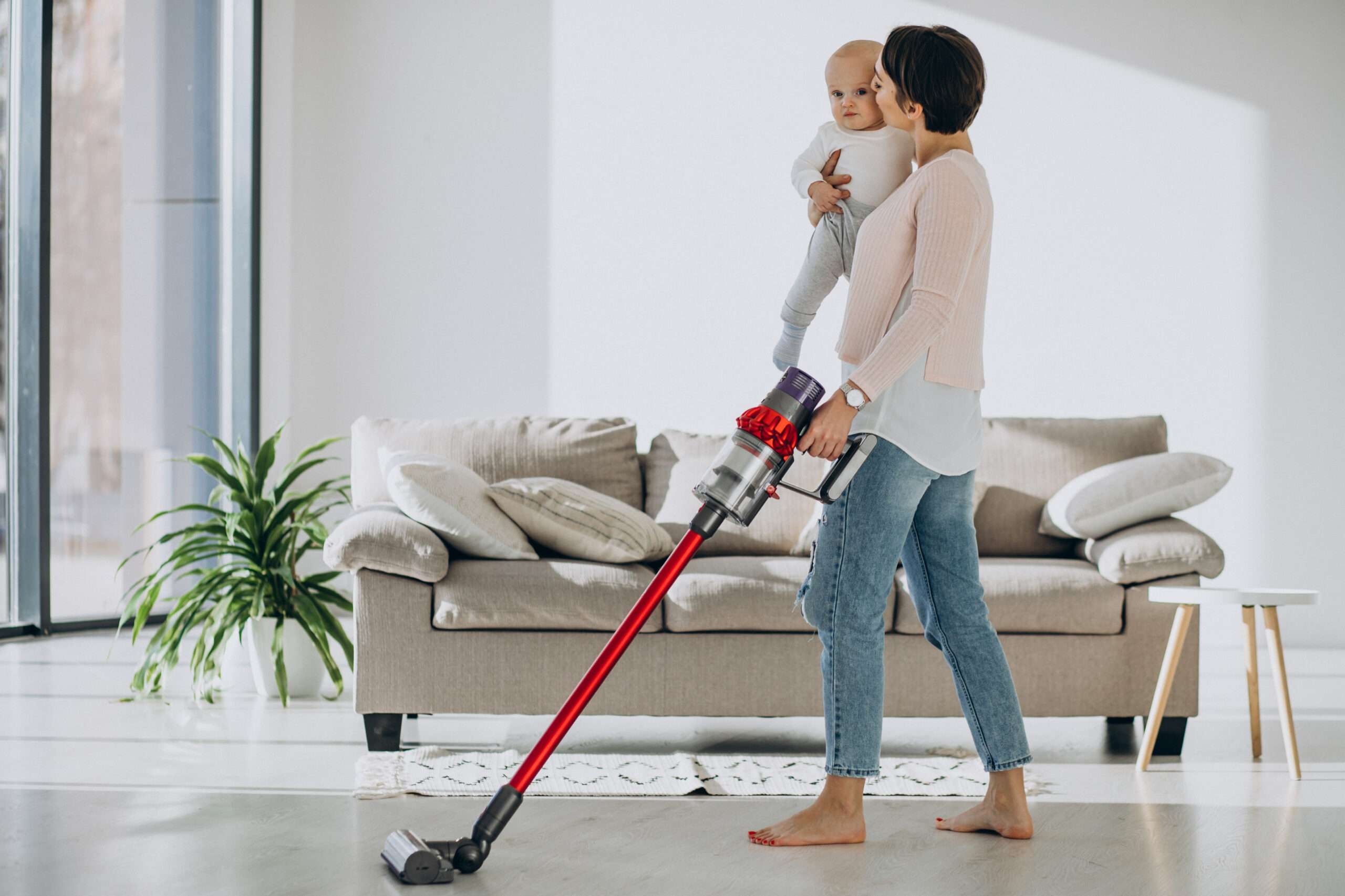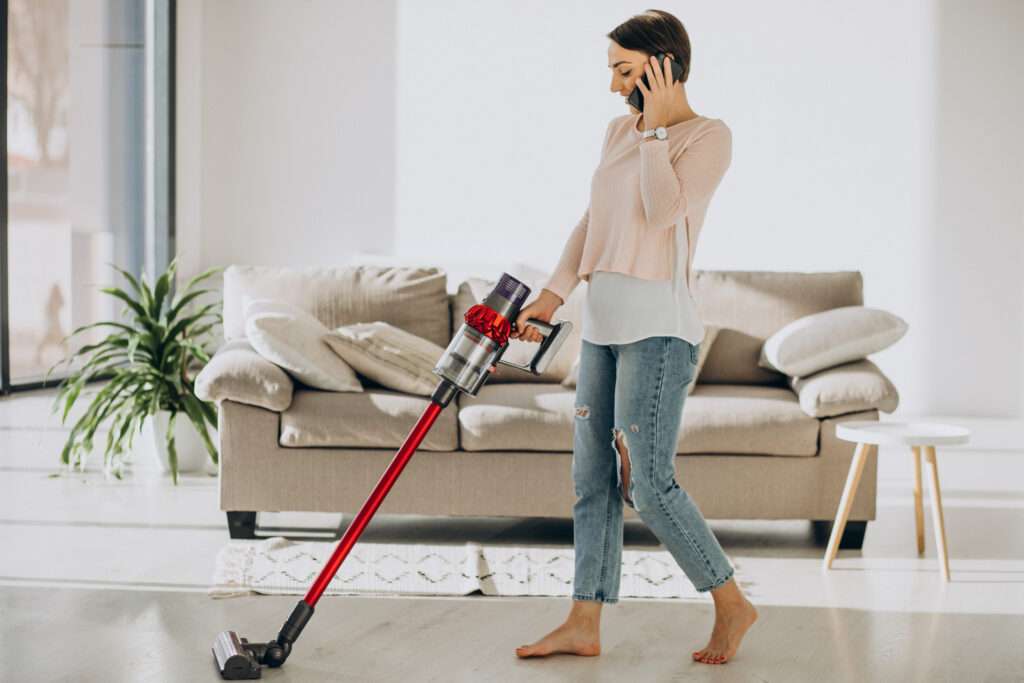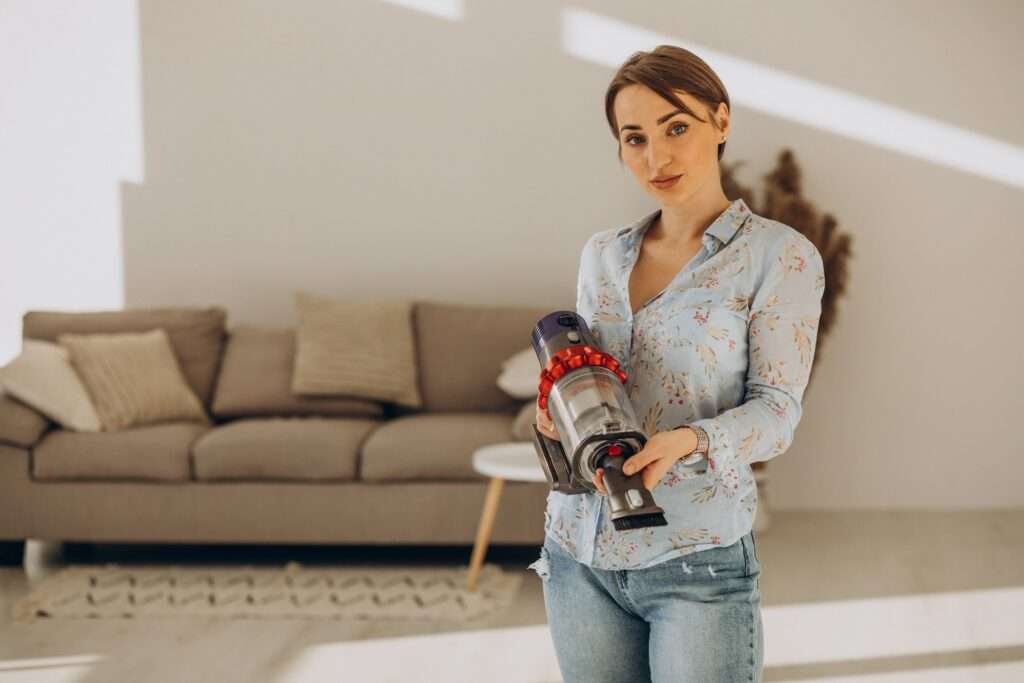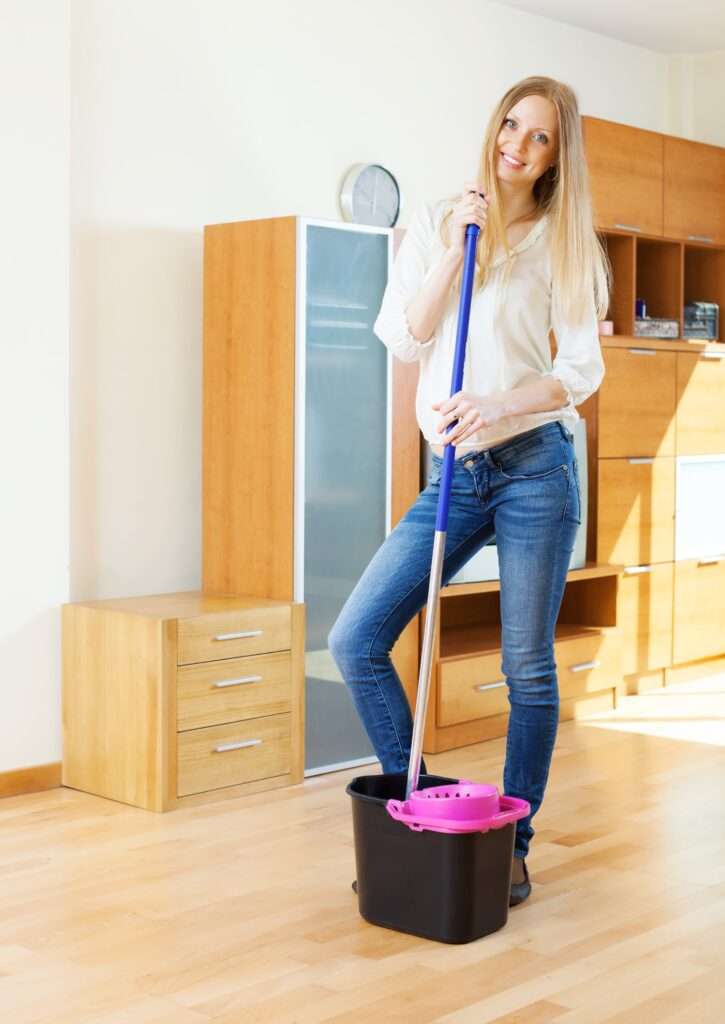
The debate over whether women vacuum clean better than men is a topic that stereotypes and assumptions have surrounded. According to the statistics reported by the Bureau of Labor Statistics, it was revealed in 2020, that women due to a wide range of factors like cultural aspects, traditional expectations, and media representations are compelled to dedicate more time to household chores than men resulting in women having a tough time balancing home and work life.
Certain entrenched norms continue to influence the distribution of household activities, perpetuating disparities in domestic labor along gender lines making women sacrifice 2.6 hours per day to do household chores, while men sacrifice only 2.0 hours on average. But challenging gendered expectations will foster a more inclusive approach to household responsibilities and it’s high time we recognize and appreciate the diversity of strengths and abilities among individuals, irrespective of gender.
In this essay, we will delve into whether women vacuum clean better than men backed by statistical evidence, and approach this subject with a nuanced perspective, since individual skills and preferences vary widely.
Table of Contents
The Gendered Stereotypes

From ancient times, starting from the dawn of civilization, gender roles coupled with societal expectations have contributed crucially to shaping perceptions about who is supposed to take responsibility for household chores. Just like the modern times, women due to a plethora of factors like cultural aspects, traditional expectations have been linked with domestic responsibilities, including mopping, and cooking and cleaning, while men have been expected to be breadwinners and thus focus on external tasks.
These stereotypes have been impacting from eternity the way we expect and judge individuals’ abilities and responsibilities in performing household chores. In addition to this, the COVID-19 pandemic has promoted the existing gender inequalities in household cleaning activities , with women taking the major burden of household responsibilities combined with additional caregiving.
A large number of economic factors such as workforce participation rates coupled with wage disparities in the workplace significantly compel women to focus on household cleaning when compared to their husbands or partners. It has been witnessed for more than decades that women deliberately leave their professional lives or reduce their work hours to accommodate caregiving and household responsibilities or take care of children since society is an expert at making them feel guilty.
In addition to this, media advertisements and social expectations have been imposing the perception that women are only and chiefly responsible for keeping the home clean and beautiful.
Statistics on Household Chores
According to the statistics reported by the Bureau of Labor Statistics, it was revealed in 2020, women due to a wide range of factors like cultural aspects, traditional expectations, and media representations are compelled to dedicate more time to household chores than men resulting in women having a tough time balancing home and work life.
Certain entrenched norms continue to influence the distribution of household activities, perpetuating disparities in domestic labor along gender lines making women sacrifice 2.6 hours per day to do household chores, while men sacrifice only 2.0 hours on average. This data bears testimony to the existence of traditional gender roles, which still shape the societal perception of both men and women that the latter is more adept and associated with being responsible for household tasks, including vacuum cleaning.
Women vacuum clean better than men? Individual Preferences and Skills
The traditional gender roles are so ingrained in the mind and brain of society that both women and men forget that it is high time to recognize that individual skills, capabilities, and preferences are the actual parameters in determining an individual’s proficiency in performing household chores including cleaning which in modern times has turned into vacuum cleaning.
Babies come to this planet with a plethora of strengths and weaknesses and eventually, all through their childhood and youth they acquire various skills and capabilities, irrespective of gender. It has often been seen that the men in the house excel at cooking or vacuum cleaning compared to their sisters, wives, or mothers due to organizational skills, attention to detail, or a particular preference or aptitude for cleanliness. So thinking that one gender is born with the capability of doing vacuum cleaning better is utter stupidity as it oversimplifies the practical and natural interplay of individual skills and abilities.
Women vacuum clean better than men? Psychological Factors

A wide range of psychological factors, such as attitude, interest, and motivation come into play to determine if they can vacuum clean better. A study conducted by the American Psychological Association found that attitude coupled with motivation strongly influences an individual’s ability to gain expertise in and complete tasks and we all know that these factors have no relation with human gender, pointing towards the need to transcend stereotypes when assessing cleaning proficiency.
Journal of Research in Personality revealed in a study that specific traits of human personality like perfectionism and conscientiousness, impact to a great extent cleaning behavior, focusing on the impact of individual psychology on cleaning habits.
Employment of Vacuum Cleaning Technology
With each passing year, there have been massive advancements in vacuum cleaning technology that have embarked on a revolution in the field of household cleaning and introduced efficient vacuum cleaners demanding minimal physical effort. Both men and women can easily operate and take advantage of these avant-garde technologies as they are not at all gender-dependent but one just needs to be comfortable, familiar, and interested in using these latest domestic cleaning tools.
Statistics from a large number of anonymous consumer surveys have pointed towards a flourishing trend of both genders embracing technology-enabled domestic cleaning solutions to lessen the load of daily household chores.
Global Perspectives

When the global perceptions of daily household chores were assessed it was revealed that cultural and traditional expectations and responsibilities vary all across the globe although surveys suggest a more balanced distribution of domestic cleaning responsibilities to break the traditional stereotypes. It has been observed that in Nordic countries like Denmark, Norway, Iceland, Finland, and Sweden, there are consistent ongoing efforts to promote gender equality in performing household tasks with special emphasis on cooking and vacuum cleaning.
Eurostat has reported that in 2019 men spent an average of 178 minutes per day on housework in comparison to 202 minutes for women, pointing towards a short gender gap. Economic Co-operation and Development (OECD) has reported that men spent 192 minutes per day on approximate domestic work in 2019, compared to 225 minutes for women in Iceland pointing towards a relatively balanced distribution of household tasks.
Even in diverse parts of Africa and Asia, educational campaigns coupled with women’s empowerment programs have challenged patriarchal norms while promoting shared decision-making within households. Analyzing such global examples is necessary as they offer valuable insights regarding the real and current scenarios regarding the degree of impact of societal norms on vacuum cleaning proficiency.
Women vacuum clean better than men? Conclusion
Whether women vacuum clean better than men is a complex issue that transcends the preconceived gender stereotypes that have continued for ages in societies all across the globe. In the modern day, statistical data from various surveys from different nations indicates variations in individual skills, preferences, the time spent on daily household chores, and the employment of technology.
Driven by policymakers, advocacy groups, cultural shifts, and changing societal attitudes, there are consistent ongoing efforts to promote gender equality in performing household tasks with special emphasis on cooking and vacuum cleaning. Even if certain nations have put up significant efforts towards more fair distributions of daily domestic chores, there are still extensive challenges to eradicating deeply entrenched gender norms coupled with eliminating structural barriers to gender equality.
FAQs
What makes one vacuum better than another?
The efficiency of a vacuum cleaner rests on several factors but chiefly performance, including suction power and efficacy in picking up dust, and debris and trapping allergens are the prime parameters that put one vacuum cleaner ahead of the other.
How do I know if my vacuum is powerful?
The power of your vacuum cleaner can be evaluated through various indicators including the suction strength, measured in Pascal or air watts units where higher numbers are indicators of stronger suction capabilities. Additionally, you can also evaluate its performance on diverse surfaces of your cleaning room or commercial space since a powerful vacuum cleaner can effectively suck up, trap and retain debris and embedded dust from carpets, curtains, various floors, and upholstery.

For the past five years, I’ve been engaged as an SEO content writer, specializing in crafting engaging blog posts. My focus lies in meticulously exploring and evaluating household cleaning appliances, particularly those integrated with cutting-edge and emerging technologies.
